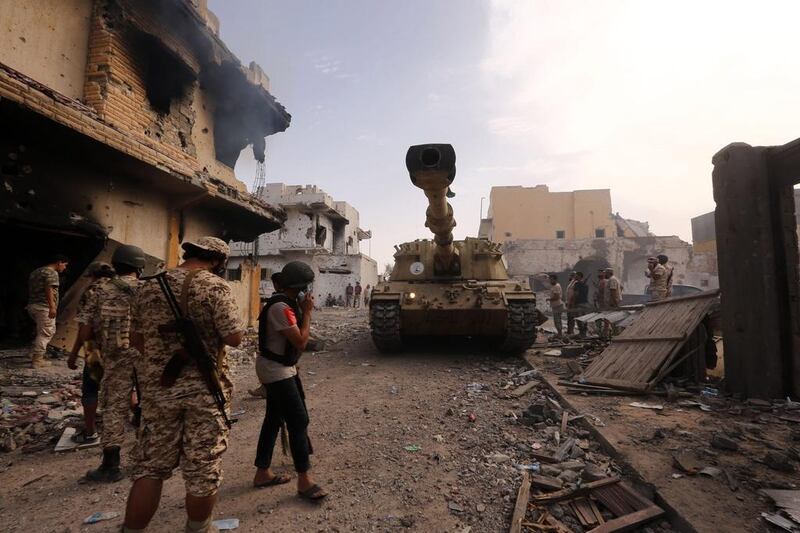Each year more than a million children in Libya benefit from free education offered by thousands of public schools. Education is compulsory until the 9th grade and parents can be prosecuted if their children do not attend school.
This year, however, the starting date for school was delayed because of lack of books, lack of security and many other factors. In fact, the school year has not been regular since 2011, when the Qaddafi regime was toppled.
Some schools finally welcomed students through their school gates on October 24, a month later than usual.
However, many public school buildings are being used as shelters for internally displaced families, with families from Sirte and Benghazi the most affected.
The former has been under ISIL control for nearly two years. The city has been a battleground since May, as attempts are made to dislodge the group. Around 250 schools in Sirte are abandoned and out of use.
In Benghazi, it is estimated that more than half of all school buildings have been damaged or completely destroyed because of more than two years of fighting between the Libyan armed forces and extremist groups. While in Sirte the entire population estimated to be 100,000 have been forced to leave the city. In Tripoli, schools are overcrowded, with class sizes averaging 40 children, and with an absence of books compounding the problem.
Not all schools have received their books since the Ministry of Education in the Tripoli-based Government of National Accord did not have enough funds to print the required amount of study guides, while its counterpart in Tobruk has plenty of resources but does not seem interested in sending books to western Libya.
This led the Ministry of Education to release all schoolbooks online, free of charge.
Unfortunately, most cities in Libya still have either long hours without electricity, no internet connections or both. Even when electricity is on and the internet connection is up, it can take hours to download a simple file.
Across Libya, security remains the major fear for all Libyan families and explains why many refuse to send their children to school. Public schools do not provide transport, leaving each family to either take their children to school themselves or depend on private transport, such as taxis.
This is made even more difficult because banks have been suffering from chronic cash shortages in a country where the economy is cash-based and credit cards simply do not form part of everyday life.
All those problems have opened the door for private schools. Over the past five years, private schools have mushroomed in every corner of the country, mainly because they provide transport to young children whose parents cannot drive them to school every day.
However, this comes at a higher cost. The average yearly fee in any private school is about 1,000 Libyan dinars (about $200 at current black market rates, three times more than that at official rates).
Unicef estimates Libya’s total number of schoolchildren this year is about 1.2 million, and around 279,000 will miss classes.
The interior of the country and faraway villages and towns are less affected since they are safer environments. Most school buildings in Bani Walid, 180km southwest of Tripoli, for example, are fully equipped and functioning normally despite being overcrowded. The same is true in other small cities such as Tarhouna and Khomes, south and east of the capital respectively.
Lack of security, the sporadic eruption of violence and political feuding have brought havoc to every aspect of life in Libya, but the education system is the main victim with far-reaching consequences for the overwhelming majority of the population.
Mustafa Fetouri is a Libyan academic and journalist





